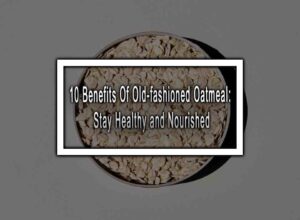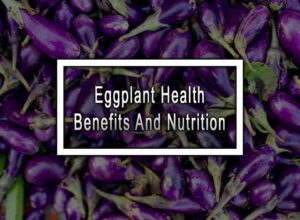Dive into Juiciness: Unpacking the Health Benefits of Watermelon!
Welcome, wellness enthusiasts and seasonal fruit aficionados! As the sun scorches and the days lengthen, there’s nothing quite as refreshing or evocative of summer bliss as biting into a crisp, sweet slice of watermelon. But this juicy treat is more than just a picnic favorite; it’s a powerhouse of health benefits just waiting to be explored. In this Buzzfeed-style breakdown, we’re going to plunge into the deep end of what makes watermelon not only a delicious thirst-quencher but also a champion for your health. Get ready to have your mind (and taste buds) blown by the incredible health benefits of this amazing fruit.
1. Hydration is Key

The health benefits of watermelon shine prominently through its incredible hydrating capabilities. Consisting of over 90% water, watermelon is a natural and refreshing way to keep the body hydrated and replenish lost fluids. It’s an excellent alternative to sugary drinks, providing hydration without added calories or caffeine. The high water content paired with trace minerals makes watermelon an ideal choice for maintaining fluid balance in the body, which is essential for all physiological processes. Including watermelon in your diet, particularly during warm weather or after vigorous activities, can help ensure proper hydration, which is vital for optimal body function, energy levels, and overall well-being.
2. Protective Antioxidants
The health benefits of watermelon are greatly enhanced by its rich supply of antioxidants, particularlylycopene and vitamin C. These antioxidants offer protective qualities, reducing the risk of chronic diseases by neutralizing harmful free radicals in the body. Lycopene, the pigment responsible for watermelon’s red hue, has been shown to support heart health and may even decrease the risk of certain types of cancer. Vitamin C, another powerful antioxidant in watermelon, contributes to immune defense and skin vitality. Regular consumption of watermelon helps bolster the body’s antioxidant defenses, promoting long-term health by preventing oxidative damage to cells and tissues.
3. Skin Health
Watermelon’s health benefits extend to enhancing skin health, attributed to its rich array of nutrients like vitamins A and C. Vitamin A is particularly important for skin repair and maintenance, aiding the growth of bodily tissues and keeping skin moist and resilient. Vitamin C is essential for the synthesis of collagen, the protein that keeps skin firm and elastic. The hydration provided by watermelon also contributes to skin appearance, helping to keep it plump, hydrated, and less prone to wrinkles and dryness. Moreover, the presence of antioxidants in watermelon protects the skin from the detrimental effects of UV radiation and environmental pollutants.
4. Lower Blood Pressure

The health benefits of watermelon include the potential to lower blood pressure, an important factor in cardiovascular health. Watermelon contains citrulline, an amino acid that converts to arginine in the body. These amino acids aid in the production of nitric oxide, a vasodilator that helps relax and widen blood vessels, improving blood flow. This can lead to lower blood pressure levels and lessen the strain on the heart. Regular consumption of watermelon can be a delicious way to contribute to heart health, as its potassium content also helps maintain proper electrolyte balance and supports healthy blood pressure.
5. Reduce the Risk of Heart Disease
Consuming watermelon carries significant health benefits for the heart. The antioxidants lycopene and vitamin C play key roles in reducing inflammation and preventing damage to blood vessels, both of which are important factors in cardiovascular disease prevention. Additionally, watermelon’s high levels of potassium are integral to regulating heart function and maintaining a healthy blood pressure. Magnesium, another crucial nutrient found in watermelon, is involved in over 300 biochemical reactions in the body, including those that support heart health. The combined effect of these nutrients can help reduce the risk of heart disease, stroke, and hypertension, making watermelon a heart-friendly choice.
6. Improved Digestion
The health benefits of watermelon also include improved digestion, attributable to its water and fiber content. Fiber is an essential component of a healthy diet, aiding in the maintenance of a well-functioning digestive system. It adds bulk to stools, which can help prevent constipation and facilitate regular bowel movements. Watermelon’s high water content is equally important, as it aids in breaking down food and absorbing nutrients while also softening stool to ease its passage. The combination of fiber and water promotes a healthy digestive tract, reduces the risk of digestive disorders, and helps the body expel waste products more efficiently.
7. Boost Your Immune System

Enhancing the immune system ranks among the health benefits of watermelon, thanks largely to its vitamin C content. This essential nutrient is involved in many areas of immune function, including the growth and repair of tissues, and acts as an antioxidant to protect against oxidative stress. In addition, watermelon’s hydration power supports overall immune health, as a well-hydrated body is better equipped to fight off infections, transport nutrients, and remove toxins. Regularly incorporating watermelon into your diet can help maintain a strong immune system, reduce the duration of colds, and provide a solid defense against various pathogens.
Seeds of Wisdom: Reaping the Health Benefits of Watermelon
There you have it. A tantalizing trek through the watermelon patch that offers much more than just a pit stop for your taste buds. This superhero of the fruit world stands tall, offering a wealth of health benefits that cater to a variety of bodily needs, from hydration to inflammation and beyond. So, the next time you indulge in a slice of heaven that is watermelon, know that you’re not only treating yourself to a sweet retreat but also sowing seeds of wellness in your everyday diet. Embrace the health benefits of watermelon, and make every bite count towards a healthier, happier you. Cheers to living vibrantly with every slice!
Health Benefits of Watermelon FAQs
Here are the most common questions about the health benefits of watermelon.
1. How might watermelon impact those with allergies?
While not common, some individuals may have an allergic reaction to watermelon. Those with a known allergy to ragweed or other fruits may experience what’s known as Oral Allergy Syndrome (OAS) when consuming watermelon.
2. Are seeds and rind of watermelon edible?
Watermelon seeds are edible and can be roasted for a snack that’s high in protein, magnesium, and healthy fats. The rind, while less commonly consumed, is also edible and can be pickled or cooked in various dishes. The rind contains additional nutrients and fiber.
3. Can anyone eat watermelon? Are there any restrictions?
Watermelon is generally considered safe for most people. However, individuals with conditions like fructose intolerance, diabetes, or those who need to monitor their blood sugar levels should consume it in moderation. People with kidney-related issues should also be cautious due to its moderate potassium content.
4. Can watermelon improve athletic performance?
Watermelon contains citrulline, which has been shown to increase nitric oxide levels in the body. This can help expand blood vessels, reduce muscle soreness, and improve exercise performance.
5. Does watermelon have any benefits for pregnant women?
Watermelon’s high water content can help pregnant women stay hydrated, while its minerals and vitamins can contribute to a healthy pregnancy. The fruit can also help with morning sickness due to its refreshing quality.
6. Is there a best time to eat watermelon?
There’s no specific “best” time to eat watermelon. It can be enjoyed as a refreshing snack, post-workout fuel, or whenever you desire. However, since it’s relatively high in natural sugars, it might be best to avoid it right before bedtime.












